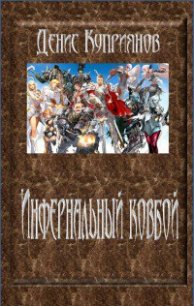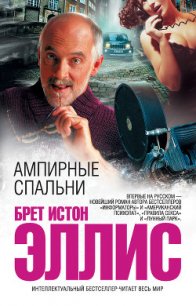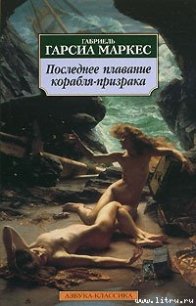Jurassic Park - Crichton Michael (книги бесплатно читать без .TXT) 📗
"Give me a second," Arnold said. "After a reset, all the system modules have to be brought on line manually." Quickly, he went back to work.
"Why manually?" Gennaro said.
"Will you just let me work, for Christ's sake?"
Wu said, "The system is not intended to ever shut down. So, if it does shut down, it assumes that there is a problem somewhere. It requires you to start up everything manually, Otherwise, if there were a short somewhere, the system would start up, short out, start up again, short out again, in an endless cycle."
Okay," Arnold said. "We're going."
Gennaro picked up the phone and started to dial, when he suddenly stopped.
"Jesus, look at that," he said. He pointed to one of the video monitors.
But Arnold wasn't listening, He was staring at the map, where a tight cluster of dots by the lagoon had started to move in a coordinated way. Moving fast, in a kind of swirl.
"What's happening?" Gennaro said.
"The duckbills," Arnold said tonelessly. "They've stampeded."
The duckbills charged with surprising speed, their enormous bodies in a tight cluster, honking and roaring, the infants squealing and trying to stay out from underfoot. The herd raised a great cloud of yellow dust. Grant couldn't see the tyrannosaur.
The duckbills were running right toward them.
Still carrying Lex, he ran with Tim toward a rocky outcrop, with a stand of big conifers. They ran hard, feeling the ground shake beneath their feet. The sound of the approaching herd was deafening, like the sound of jets at an airport. It filled the air, and hurt their ears. Lex was shouting something, but he couldn't hear what she was saying, and as they scrambled onto the rocks, the herd closed in around them.
Grant saw the immense legs of the first hadrosaurs that charged past, each animal weighing five tons, and then they were enveloped in a cloud so dense he could see nothing at all. He had the impression of huge bodies, giant limbs, bellowing cries of pain as the animals wheeled and circled. One duckbill struck a boulder and it rolled past them, out into the field beyond.
In the dense cloud of dust, they could see almost nothing beyond the rocks. They clung to the boulders, listening to the screams and honks, the menacing roar of the tyrannosaur. Lex dug her fingers into Grant's shoulder.
Another hadrosaur slammed its big tail against the rocks, leaving a splash of hot blood. Grant waited until the sounds of the fighting had moved off to the left, and then he pushed the kids to start climbing the largest tree. They climbed swiftly, feeling for the branches, as the animals stampeded all around them in the dust. They went up twenty feet, and then Lex clutched at Grant and refused to go farther. Tim was tired, too, and Grant thought they were high enough. Through the dust, they could see the broad backs of the animals below as they wheeled and bonked. Grant propped himself against the coarse bark of the trunk, coughed in the dust, closed his eyes, and waited.
Arnold adjusted the camera as the herd moved away. The dust slowly cleared. He saw that the hadrosaurs had scattered, and the tyrannosaur had stopped running, which could only mean it had made a kill. The tyrannosaur was now near the lagoon. Arnold looked at the video monitor and said, "Better get Muldoon to go out there and see how bad it is."
"I'll get him," Gennaro said, and left the room.
The Park
A faint crackling sound, like a fire in a fireplace. Something warm and wet tickled Grant's ankle. He opened his eyes and saw an enormous beige head. The head tapered to a flat mouth shaped like the bill of a duck. The eyes, protruding above the flat duckbill, were gentle and soft like a cow's. The duck mouth opened and chewed branches on the limb where Grant was sitting. He saw large flat teeth in the check. The warm lips touched his ankle again as the animal chewed.
A duckbilled hadrosaur. He was astonished to see it up close. Not that he was afraid; all the species of duckbilled dinosaurs were herbivorous, and this one acted exactly like a cow. Even though it was huge, its manner was so calm and peaceful Grant didn't feel threatened. He stayed where he was on the branch, careful not to move, and watched as it ate.
The reason Grant was astonished was that he had a proprietary feeling about this animal: it was probably a maiasaur, from the late Cretaceous in Montana. With John Horner, Grant had been the first to describe the species. Maiasaurs had an upcurved lip, which gave them the appearance of smiling. The name meant "good mother lizard"; maiasaurs were thought to protect their eggs until the babies were born and could take care of themselves.
Grant heard an insistent chirping, and the big head swung down. He moved just enough to see the baby hadrosaur scampering around the feet of the adult. The baby was dark beige with black spots. The adult bent her head low to the ground and waited, unmoving, while the baby stood up on its hind legs, resting its front legs on the mother's jaw, and ate the branches that protruded from the side of the mother's mouth.
The mother waited patiently until the baby had finished eating, and dropped back down to all fours again. Then the big head came back up toward Grant.
The hadrosaur continued to eat just a few feet from him. Grant looked at the two elongated airholes on top of the flat upper bill. Apparently the dinosaur couldn't smell Grant. And even though the left eye was looking right at him, for some reason the hadrosaur didn't react to him.
He remembered how the tyrannosaur had failed to see him, the previous night. Grant decided on an experiment.
He coughed.
Instantly the hadrosaur froze, the big head suddenly still, the jaws no longer chewing. Only the eye moved, looking for the source of the sound. Then, after a moment, when there seemed to be no danger, the animal resumed chewing.
Amazing, Grant thought.
Sitting in his arms, Lex opened her eyes and said, "Hey, what's that?"
The hadrosaur trumpeted in alarm, a loud resonant bonk that so startled Lex that she nearly fell out of the tree. The hadrosaur pulled its head away from the branch and trumpeted again.
"Don't make her mad," Tim said, from the branch above.
The baby chirped and scurried beneath the mother's legs as the hadrosaur stepped away from the tree. The mother cocked her head and peered inquisitively at the branch where Grant and Lex were sitting. With its upturned smiling lips, the dinosaur had a comical appearance.
"Is it dumb?" Lex said.
"No," Grant said. "You just surprised her."
"Well," Lex said, "is she going to let us get down, or what?"
The hadrosaur had backed ten feet away from the tree. She bonked again. Grant had the impression she was trying to frighten them away. But the dinosaur didn't really seem to know what to do. She acted confused and uneasy. They waited in silence, and after a minute the hadrosaur approached the branch again, jaws moving in anticipation. She was clearly going to resume eating.
"Forget it," Lex said. "I'm not staying here." She started to climb down the branches. At her movement, the hadrosaur trumpeted in fresh alarm.
Grant was amazed. He thought, It really can't see us when we don't move. And after a minute it literally forgets that we're here. This was just like the tyrannosaur-another classic example of an amphibian visual cortex. Studies of frogs had shown that amphibians only saw moving things, like insects. If something didn't move, they literally didn't see it. The same thing seemed to be true of dinosaurs.
In any case, the maiasaur now seemed to find these strange creatures climbing down the tree too upsetting. With a final honk, she nudged her baby, and lumbered slowly away. She paused once, and looked back at them, then continued on.
They reached the ground. Lex shook herself off. Both children were covered in a layer of fine dust. All around them, the grass had been flattened. There were streaks of blood, and a sour smell.
Grant looked at his watch. "We better get going, kids," he said.
"Not me," Lex said. "I'm not walking out there any more."
"We have to."
"Why?"
"Because," Grant said, "we have to tell them about the boat. Since they can't seem to see us on the motion sensors, we have to go all the way back ourselves. It's the only way."
"Why can't we take the raft?" Tim said.
"What raft?"
Tim pointed to the low concrete maintenance building with the bars, where they had spent the night. It was twenty yards away, across the field. "I saw a raft back there," he said.
Grant immediately understood the advantages. It was now seven o'clock in the morning. They had at least eight miles to go. If they could take a raft along the river, they would make much faster progress than going overland. "Let's do it," Grant said.
Arnold punched the visual search mode and watched as the monitors began to scan throughout the park, the images changing every two seconds. It was tiring to watch, but it was the fastest way to find Nedry's Jeep, and Muldoon had been adamant about that. He had gone out with Gennaro to look at the stampede, but now that it was daylight, he wanted the car found. He wanted the weapons.
His intercom clicked. "Mr. Arnold, may I have a word with you, please?"
It was Hammond. He sounded like the voice of God.
"You want to come here, Mr. Hammond?"
"No, Mr. Arnold," Hammond said. "Come to me. I'm in the genetics lab with Dr. Wu. We'll be waiting for you."
Arnold sighed, and stepped away from the screens.
Grant stumbled deep in the gloomy recesses of the building. He pushed past five-gallon containers of herbicide, tree-pruning equipment, spare tires for a Jeep, coils of cyclone fencing, hundred-pound fertilizer bags, stacks of brown ceramic insulators, empty motor-oil cans, work lights and cables.
"I don't see any raft."
"Keep going."
Bags of cement, lengths of copper pipe, green mesb… and two plastic oars bung on clips on the concrete wall.
"Okay," he said, "but where's the raft?"
"It must be here somewhere," Tim said.
"You never saw a raft?"
"No, I just assumed it was here."
Poking among the junk, Grant found no raft. But he did find a set of plans, rolled up and speckled with mold from humidity, stuck back in a metal cabinet on the wall. He spread the plans on the floor, brushing away a big spider. He looked at them for a long time.




